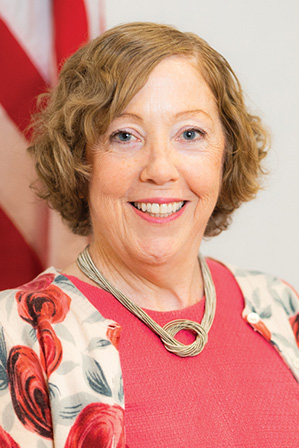Career Diplomats Matter
Where We Stand
BY JULIE NUTTER

One of AFSA’s goals in the past several years has been to tell far and wide the story of the U.S. Foreign Service, the story of what diplomats do and why it matters to Americans. So why does it matter whether seasoned diplomats are in the field rather than political appointees? What is the extra value that a career diplomat brings to the table?
Two of the most distinctive characteristics of career diplomats, especially at the senior level, are the ability to understand a country or a region well enough to detect diplomatic opportunities—for reaching peace, for expanding freedom, for creating markets, for strengthening ties with the United States— and the ability to turn these opportunities into successful policies.
Did you know…
…that the State Department has more political appointee slots (by actual numbers, not percentages, and not even counting ambassadors) than the vastly larger Department of Defense?
…that political appointees now fill 50 percent of all U.S. ambassadorships (30 percent has been the average over the past three decades)?
The fact that diplomats live, work and break bread with their counterparts, members of civil society, neighbors and friends in country, and that they can understand what’s on television, radio and social media, means that diplomats can sense even subtle shifts that mean opportunity. They can then choose the right tools to maximize the chances of policies succeeding. Others with a shallower grasp of a country and its social or political dynamics, or those who don’t have the strategic patience necessary to take advantage of slowly unfolding events, won’t always get to the goal—or they reach the goal with broken relationships and the consequences of having to make good on threats.
In the early 2000s, when I was the senior Ukraine desk officer, that country was an ideological battleground between those who favored a Western-leaning direction for the country after the fall of the Soviet Union, and those who wanted a future tied to Russia. The existing regime was sclerotic and reactive.
Our office developed a strategy to help ensure the Ukrainian presidential election, then two years away, would be free and fair. We knew, through our contacts across Ukraine, with our diplomatic partners, and with the Ukrainian diaspora in the United States, that the Ukrainian people desired a change for the better. Ukrainian media were also reflecting and amplifying that desire— and we had deep friendships with that community, thanks to seed grants to nascent media outlets a decade prior. We knew Ukraine was ready to open up and we judged the chances for a transparent and free election as the best they had been since the Soviet Union collapsed.
Still, it was a heavy lift. One day, after a discussion on how to strengthen our hand, our office director suggested inviting the European Union to join forces with us. His years of experience working with the EU gave him the sense they would be eager.
Diplomats can sense even subtle shifts that mean opportunity and choose the right tools to maximize the chances of policies succeeding.
It was a turning point. Having the EU on our side added to the weight of our public statements, which we often wrote in parallel, and our demarches, which we often delivered jointly. Working with the EU catapulted the issue of peaceful transfer of power out of the purely bilateral realm and highlighted the regional stakes involved. It also later promoted a positive agenda with the EU at the time when the Iraq War was dividing us, a huge plus.
The next months were intense—as diplomats know, the road from opportunity to successful action is not straight. But the entire U.S. interagency team at home and overseas got behind the strategic policy direction laid out by the State Department.
The first run-off election was marred by voter intimidation and outright fraud, which produced massive popular protests. The results of the vote were annulled, and the Ukrainian Supreme Court ordered a re-vote. International observers and monitors determined the second vote to be “fair and free” and by a clear margin, the Western-leaning Viktor Yushchenko was elected president of Ukraine. The peaceful Orange Revolution became a part of Ukrainian history.

